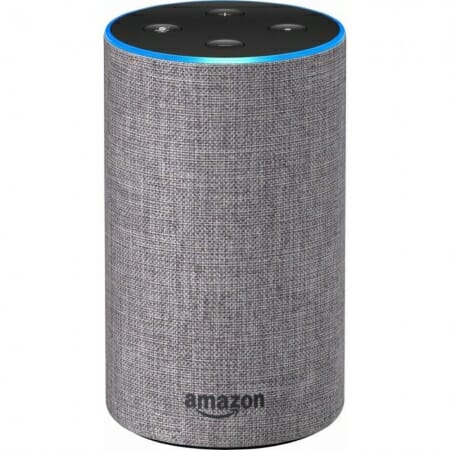The Growing Influence of Voice Tech in the Travel Industry
Every once in a while a technology or format comes along that forces the travel industry to think again. The introduction of the internet and online commerce was one. Then came the dominance of search engines and the importance of SEO, combined with the rise of travellers searching, organising and booking through mobile devices.
Now it looks as though a new medium is slowly beginning to enter the industry: Voice search and voice tech in general. But is it really any different to typing a query into search engines like many of us do on a daily basis? And can voice functions come to our rescue when we need them? Today we're going to explore the topic and see what influence, if any, the changing way that we search for information could have on the industry of travel.
This article is based on a report from EyeforTravel. Read the full document here.
First up, let's clarify what we mean by voice search and voice functions. The rise of smart home technology that's always listening and the ubiquity of smartphones and tablets have changed our relationship with the internet. Back in the days of dial-up (pre-WiFi), getting online was a task that required time, patience and some level of technical understanding. Now access is everpresent and simple enough for anybody to achieve.
In recent years companies such as Apple, Microsoft and Amazon have become aware of and acted upon two different trends in technology. First is the increasing need for a convenient online experience, the fact that we want information at our fingertips whenever we need it. The second trend is the realisation that our voice - no matter how fast we can type - is still our most effective means of communication.

As AI has become more sophisticated and computers have evolved the ability to recognise speech patterns, voice commands have taken centre stage. The ability to listen, understand and relay back relevant information is a new peak in home computing. It's no surprise that the market for such devices is on an upward trajectory.
In 2015, Amazon launched the first 'Echo', a voice-responsive speaker for the home that sold almost 2 million units. Once Google entered the market with 'Home', sales grew to around 6.5 million in 2016. Products have evolved and new players have entered the fray, leading to industry analyst VoiceLabs to estimate a total of 33 million “voice first” home devices in use in homes globally in 2017.
Voice-first can be taken to mean devices specifically purchased for use with voice commands - not just smartphones and laptops with integrated assistants.
“We think that all search through desktop is dead.” - Fabrice Otaño, chief data officer, AccorHotels Group
So How Common is Voice Search?
Before we get into the specifics of voice search and its relationship with the travel industry, it's a good idea to take a step back and consider how common this new technology actually is.
Some may see it as a gimmick. Others might use it every day. But how widespread is this adoption? To give you some idea, at the 2016 Google I/O conference, chief executive Sundar Pichai said 20% of queries Google received via mobile phones in the US were spoken, rather than typed. Apparently, Google was using this figure in workshops with British travel firms last year, so it can't be far off.
Interestingly, in China, the adoption of voice searches is thought to be even higher, with hundreds of millions of users and queries per day.
Some projections - notably from Baidu's Andrew Ng - state that 50 percent of all searches will involve either voice or images by 2020. Why might we speak instead of type? A joint Baidu, Stanford University and University of Washington study in 2016 found voice recognition to be better at producing text on a mobile device than punching words into its keyboard.
That definition of 'better' is mostly down to speed: It was three times quicker to say English words than type them and 2.8 times faster saying Mandarin than typing it.
But it was also down to the number of mistakes made. We often type mistakes by accident and rely on spell check assistants to fill in the gaps as we go. According to the same study, the rate of mistakes when using voice recognition to write English was a fifth lower.
It was nearly two-thirds lower with Mandarin, which is one obvious reason why the Chinese market is leading the way for voice search growth. Baidu, China’s most popular search engine, has invested heavily in speech recognition AI.
So how about some travel industry specific numbers?
According to Bing - the search engine that's dwarfed by Google but still manages to carry out 9% of searches worldwide, including for Amazon Echo and Microsoft’s digital assistants - voice search for travel is still at an early stage.
In April 2017, Bing Ads claimed that the number of people in the UK using voice search to book hotels increased by a whopping 343% from the previous year. The number of people searching for flights using voice technology grew by 277%.
We don't know the figures, just those percentages. While the growth seems huge, it may just reflect the fact that these statistics follow a standing start. Sure, more people are starting to use voice search technology. But more is more than 0; percentages don't mean too much with a tech this new.
Starting from small: The rising use of voice search
It's expected that digital advertisers will begin to pump more and more money into voice search results in the near future. But apart from offering targeted ads and bugging travellers about their next trip, how could this technology actually help the industry?

First of all, there's its practical use. As we all know, typing is not the most efficient means of communication that we have. Especially when we're on the move or in a foreign country.
Times like that travellers need information, fast. That's why voice search offers an ideal way to ease some of travel's timeless annoyances. When you're dragging your suitcase down the street on the other side of the world and it's 40ºC, the ability to speak to a virtual assistant, make a booking or quickly get local information is invaluable. Voice search could soon be the ultimate in online convenience.
Sure, we're not there yet. But we are not far from the technology making a big impact. Just consider Google Pixel Buds, smart headphones capable of translating in real time, among other things.
Problems in the pipeline
There are a few issues with voice search technology. The first is to do with privacy. How comfortable are we in having devices constantly listening in our homes and with us on our travels? Second, and as we discussed in our feature on Google's Pixel Buds, there is also a fine line between convenience and authenticity.
One thing we know for sure is that today's traveller is generally searching for an authentic experience. How do automated translation and an increased use of technology fit into that equation?
Third, and perhaps of most interest to smaller travel service providers: What about the obvious monopoly that a small number of players continue to have in the world of online search? How does this relate to voice search and voice results?
The biggest names in the space are Google, Microsoft, Amazon and Apple. According to EyeForTravel's Tim Gunstone, the dominance of the big four in the voice search space could mean there's trouble in store for travel firms.
“Google was the most amazing way to sell hotel rooms out there, they [travel companies] piled in and Google ratcheted up the price so it is no longer affordable,” he said. “The industry has developed strategies to cope with effectively a media monopoly currently, but this is going to happen with Amazon voice, and Google voice and all the other voices coming along. The monopoly aspect is the most worrying thing.”
The problem will arise for travel businesses when the big players in voice search start selling the chance to be listed in results. Fabrice Otaño, chief data officer in AccorHotels group, said “What we don’t know is how much we have to pay to be referenced by Google Home. If Booking.com invents a new voice assistant and will pay three billion to be referenced, it’s the same battle as today but on a different channel.”
Many voice assistants partner with third parties to offer skills. These voice-powered apps could be a totally new battleground for travel companies in a few short years.
Voice search is a long way from the finished article
With good reason, there's plenty of excitement about the potential of voice search technology. But it's a long way from being an effective way to interact with the internet as effectively as we'd like. That's mostly down to the still-limited ability of AI to understand natural language.
That also explains why the voice search engine experience will remain a lousy one for the near future. Sure, AI from Google, Amazon, Apple and Microsoft can't yet give us the most coherent results based on a voice query. But that's also because our speech isn't always as concise as it needs to be. After all, do you ever read your google searches out loud? We tend to speak to search engines in a different way than we would say something out loud.
In time, search engines will get smarter about the results they feedback orally vs those that appear on-screen. Travel suppliers may also have to start developing search results that are optimized for listening. Nobody is really doing that yet, despite the obvious need for that technology looming on the horizon.
Tim Hentschel, CEO of HotelPlanner, says his company is starting to look at voice search. “You can’t go too broad," he said, because - this is the feedback I’ve got more often than not – customers start asking it anything and everything and you just get a horrible user experience. And then your assistant on Alexa’s store gets bad ratings and quickly ruins your brand reputation.”
"The instructions that come with how we are going to communicate in AI with a virtual assistant have to be very specific and what you want them to achieve has to be quickly obtainable.”
For that reason, voice applications will likely start small. Asking for the total of your reward points is a great example. Or getting confirmation of a booking you have made.
Bill Keen, VP of mobile solutions & digital guest experience at the InterContinental Hotels Group, says that IHG actually trained the company's Alexa virtual concierge by listening to calls that came into the customer call centre.
“Through voice listening tools they actually powered our initial Alexa implementation in the hotel rooms, where we actually had a repository of things that guests normally ask when they call the call centre desk and we could actually build it into [the device]. Voice is sexy again. I do believe that’s the next interface for us.”
We help you become relevant and stay that way, no matter the medium

Here at Travelshift we empower our partners by helping them build travel marketplaces that get results. We're well aware that search engine results are dominated by the major OTAs. That's why our platform provides all the tools you need to build a community of small service providers, content influencers and travellers. Together we can shake up your chosen niche.
Find out more by reading through our case study, or contact us today for more information.